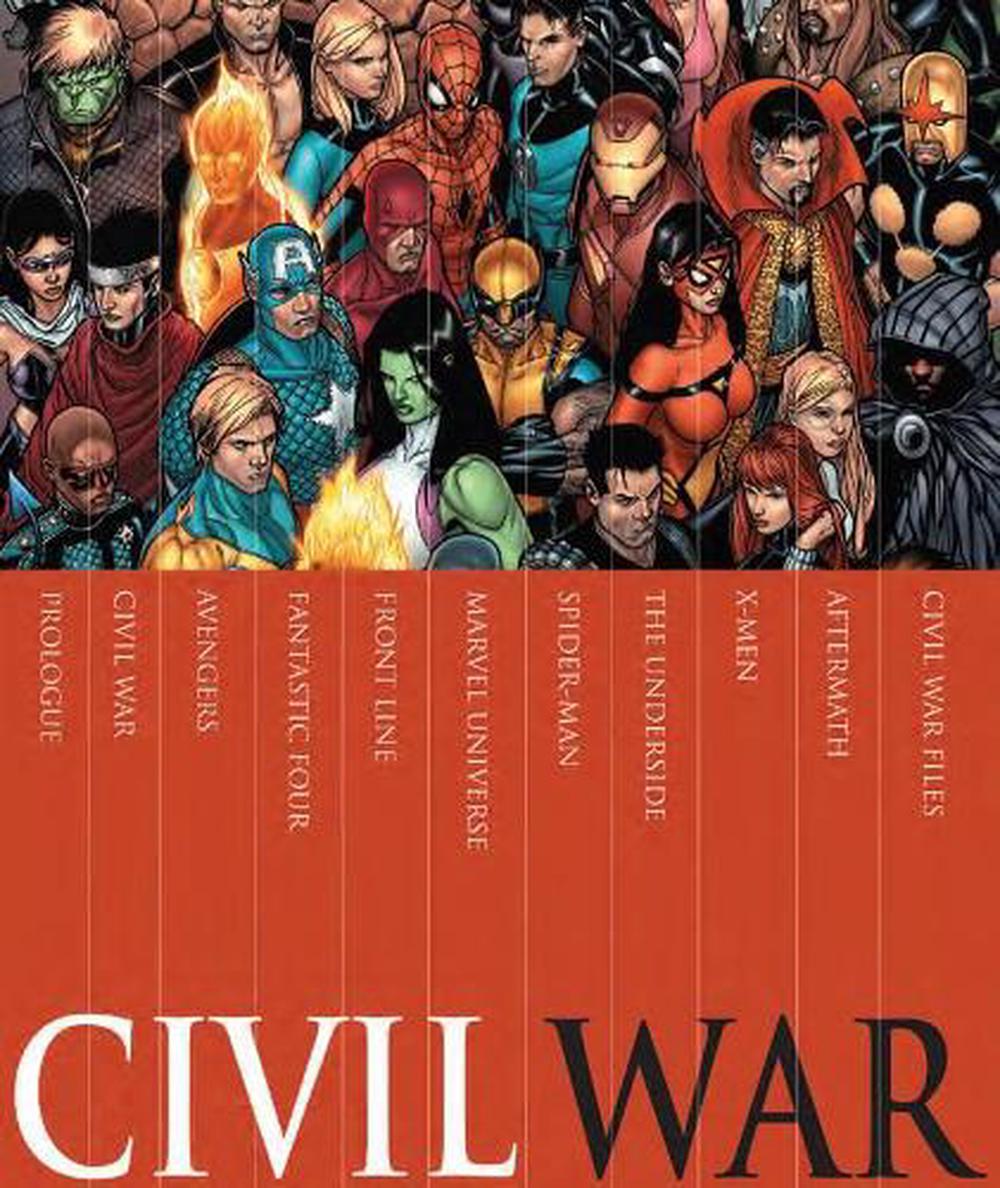

Marvel announced in August 2006 that some issues of the main Civil War series would be pushed back several months to accommodate artist Steve McNiven.

It was the perfect solution and nobody, as far as I'm aware, has done this before. What they wanted was superheroes paid by the federal government like cops and open to the same kind of scrutiny. People thought they were dangerous, but they did not want a ban. I opted instead for making the superhero dilemma something a little different. Mark Millar, writer for the story, has said: A number of villains also choose one side or the other. While arguing with Iron Man about the law, Luke Cage (previously the second Power Man), an African American, compares the mandatory registration to slavery. Those who register may work for S.H.I.E.L.D., earning a salary and benefits like other American civil servants.Ĭharacters within the superhero community in the Marvel Universe split into two groups: one advocating the registration as a responsible obligation, and the other opposing the law on the grounds that it violates civil liberties and the protection that secret identities provide. The Superhero Registration Act introduced in Civil War requires any person in the United States with superhuman abilities to register with the federal government as a "human weapon of mass destruction," reveal their true identity to the authorities, and undergo training. The 2016 film Captain America: Civil War in the Marvel Cinematic Universe loosely adapted the storyline. A sequel, Civil War II, debuted in June 2016. The series polarized critics and fans but it was a commercial success. government's increased surveillance of its citizens.


Civil War explores the conflict between freedom and security against a backdrop of real-life events and discussions, such as the U.S. Marvel, become increasingly authoritarian. The superheroes who support the law, including Mister Fantastic and Ms. Spider-Man is caught in the middle, while the X-Men take a neutral stance. Superheroes who oppose the act, led by Captain America, find themselves in conflict with its supporters, led by Iron Man. government passes a Superhero Registration Act, ostensibly to have super-powered individuals act under official regulation, somewhat akin to law enforcement. The series' tagline is "Whose Side Are You On?" The storyline builds upon events in previous Marvel storylines, particularly " Avengers Disassembled", " House of M", and " Decimation". " Civil War" is a 2006–07 Marvel Comics crossover storyline consisting of a seven-issue limited series of the same name written by Mark Millar and penciled by Steve McNiven and various tie-in books. Molly Lazer, Aubrey Sitterson, Andy Schmidt and Tom Brevoort Iron Man / Captain America: Casualties of War #1 Fallen Son: The Death of Captain America #1–5


 0 kommentar(er)
0 kommentar(er)
